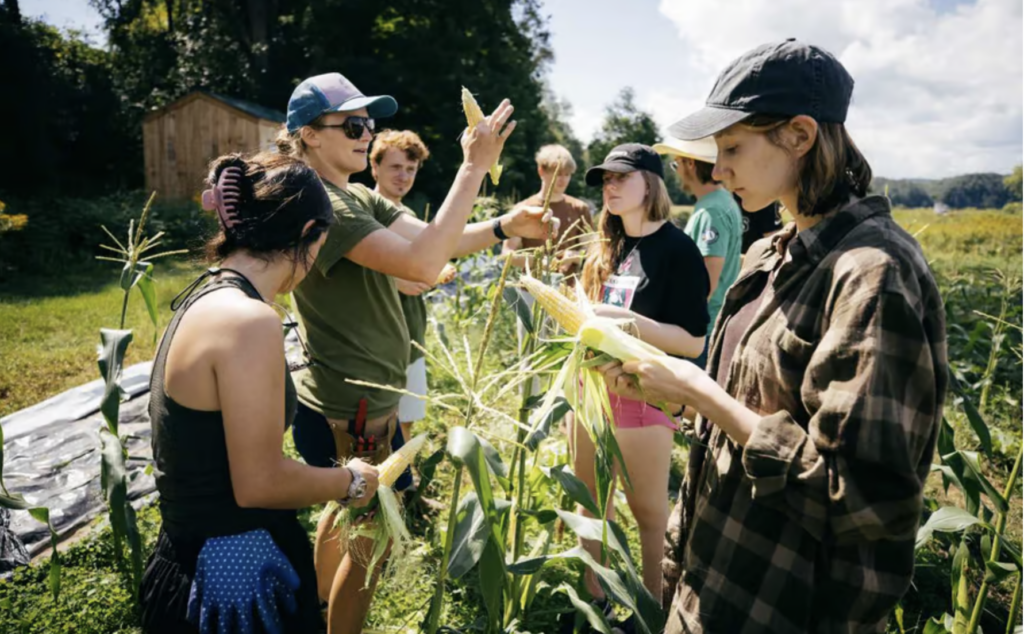March 20, 2023
Do University Farms Truly Teach Sustainability?
By Eleanor Buchanan
The number of student food gardens has risen dramatically at prestigious urban and suburban colleges, but these campus farms should be wary of overstating their impact.

Yale and Princeton universities offer $8,000 meal plans, but they also grow their own vegetables. Among prestigious urban and suburban colleges, they aren’t alone. The student-run-farm model, often integrated into university programming, promotes the production and consumption of sustainable food. This includes non-rural settings, where the number of student food gardens has risen dramatically. Since the 2010s, Harvard and Columbia have grown potatoes, squash, and onions in small plots scattered around campus. The Vanderbilt University Community Garden, established in 2018, has a greenhouse, while Yale cultivates an acre of land for plants, animals, and make-from-scratch pizza.
When elite schools build garden spaces, they’re not growing food for food’s sake. Over 40 percent of the food purchased for Princeton’s dining halls—including produce—is local, and all burgers on campus are a blend of mushrooms and grass-fed beef. At Yale, a typical dining hall menu might feature a Cajun portobello sandwich with avocado and remoulade, toasted potato buns, and massaged kale salad, and quinoa with seven vegetables. Wild salmon comes from Alaska; milk and bread are made in Connecticut.
With a range of organic and low-carbon options already at hand, it’s not surprising that students who work at college farms, such as Princeton senior Sam Vasen, see their food garden as primarily educational: “It takes kids from very academic backgrounds and allows people to mess around, play in a more natural way,” Vasen described. “It wouldn’t act as a substitute for going to the supermarket.”


